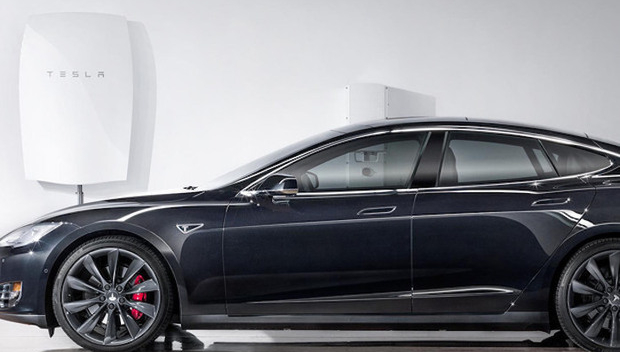As Tesla begins ramping up production of its seven kilowatt wall-mountable in-home battery this year for the US market, it expects to exceed the sales of the country’s entire energy storage system market last year.
Tesla is expected sell 168.5 megawatt-hours of energy storage systems to the nation’s leading residential solar system installer, SolarCity, this year according to an SEC filing. That’s 60% larger than the entire 2015 US behind-the-meter market and more than six times what Tesla sold to SolarCity last year, according to a note by GTM Research.
Tesla expects revenues from SolarCity to increase from $8 million so far to $44 million this year – a 450% annual growth rate. “The numbers are all the more astonishing if we factor potentially lower unit prices,” GTM senior storage analyst Ravi Manghani wrote in the report.
Tesla CEO Elon Musk is chairman of the board of SolarCity, which he co-founded with his cousin, Lyndon Rive, who is also the company’s CEO.
Musk has said the company’s $5 billion Gigafactory will double the world’s supply of lithium-ion batteries for cars and homes when it’s fully live in 2017. During an announcement of Tesla’s new Model X sedan, Musk said the Gigafactory is already producing the home batteries.
Meanwhile, Lockheed Martin’s Energy group is planning to ramp up production of lithium-on batteries in addition to the commercial flow-battery systems it already produces.
Lockheed Martin’s GridStar Lithium-Ion batteries will come in 125 kilowatt (kW) or 250kW capacities for commercial operations. The modular batteries will be able to scale into megawatt installations.
The behind-the-meter energy storage market is poised for major growth in the US, according to Manghani and others.
The global market for lithium-ion batteries was $11.7 billion in 2012 and is expected to reach to reach $30.6 billion by 2024, according to Navigant Research.
Commercial energy storage system manufacturing is currently consolidated in just a handful of regions, but falling system costs will be a major factor enabling broader global market growth, according to research firm IHS.
South Korea, Japan and the United States will will account for 59% of global installations this year, with commercial deployments also expected to increase in other regions in the next five years, according to a report from IHS.
The average price for lithium-ion batteries fell 53% between 2012 and 2015, and by 2019 are forecast to again decline by half again, IHS said.
Lucas Mearian, Computerworld








Subscribers 0
Fans 0
Followers 0
Followers